8 Cool Wearable Tech Devices That Stole The Show At CES 2020
Wearables are going everywhere, from your forehead to your dog! CRN gives a preview of where on your body, or elsewhere, you can expect to wear the next big thing.

Wearables For Your Forehead And Your Dog
What's a modern CES like without wearables? Luckily, we didn't have to find out, as this year's show was packed to the brim with all sorts of new technology you can wear in various places.
That includes the forehead — yes, there are now wearables for your forehead. They even make wearables for your dog now — and not just for location tracking anymore! And then there were wearables that fit the more traditional mold, like wristbands and earbuds, but offer a novel twist.
What follows are eight cool wearable tech devices that stole the show at CES 2020, ranging from cool-looking face masks to belts that can prevent you from falling. And a few things in between.
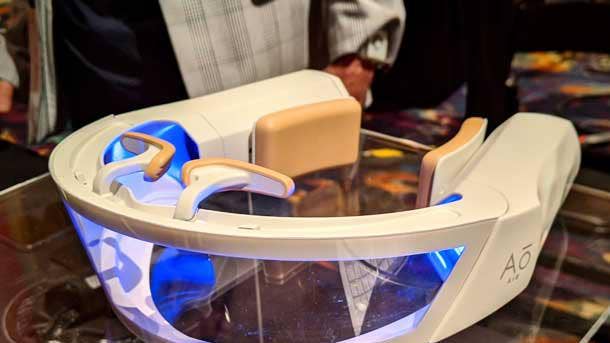
Atmos Faceware
The Atmos Faceware is a stylish air filter mask that device maker Aō Air claims can provide up to 50 times better air quality than leading face masks available on the market. Thanks to the device's proprietary PositivAir system and multi-stage D'fend filtration, the Atmos Faceware does not require a seal to work, unlike other face masks. It also comes with the ability to provide users with real-time air pollution data as well as the ability to monitor and analyze the user's breathing. The device will cost $350 when it becomes available in July.
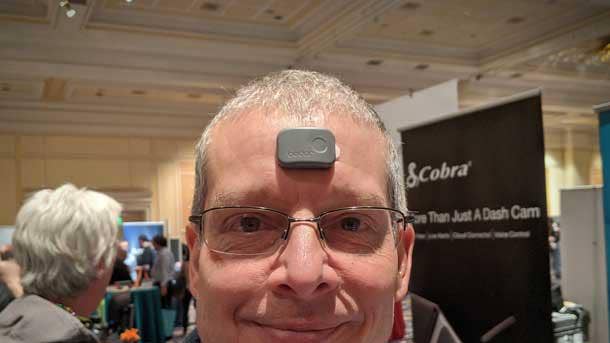
Beddr SleepTuner
The Beddr SleepTuner is a small wearable that aims to “treat the root causes of sleep issues" by monitoring a variety of things, such as poor sleep hygiene, insomnia and sleep apnea. The device – which syncs with a smartphone app and affixes to the forehead – monitors overnight oxygen saturation and heart rate as well as sleep duration and the impact of sleep positions on breathing and oxygen levels. Weighing less than a nickel and measuring smaller than a stamp, the device is made to be worn comfortably on the forehead overnight. The device — which comes with a protective case, a quick start guide, 12 hypoallergenic adhesives and a USB-c charging cable — costs $149. Beddr also plans to offer a four-week sleep coaching program using data from the app for $199.
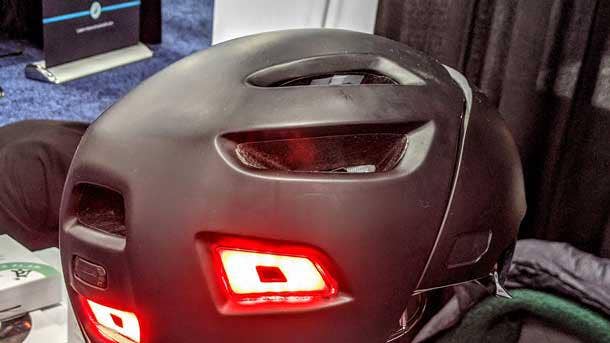
Cosmo Connected Smart Helmet
The Cosmo Connected smart helmet comes with a built-in brake light and an augmented-reality visor to improve navigation for cyclists. The helmet comes with a compact remote control that allows the cyclist to active turn signals displayed on the back of the helmet without having to let go of the handlebars. The visor provides a heads-up display that can show information for speed, distance traveled and directions. The visor can also warn the cyclist of potential hazards coming from the side or behind. The helmet is estimated to cost $350, and it will start shipping in the U.S. later this year.
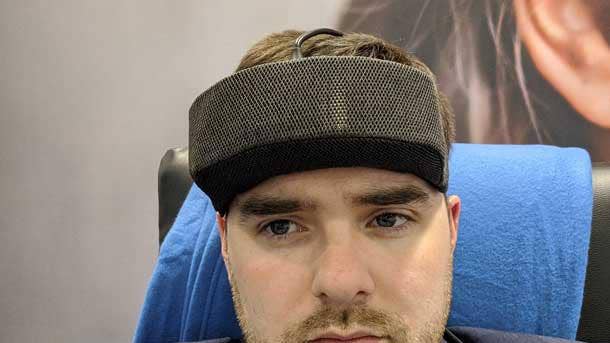
Ebb, Second Generation
Ebb aims to relieve sleeplessness caused by an overactive mind with a fluid-filled headband that wraps around the head and cools the forehead to an optimal temperature. Developed by Dr. Eric Nofzinger, who has studied the brain mechanisms of healthy sleep for 35 years, the idea is to reduce metabolic activity in the frontal cortex and calm the mind as a result, according to device maker Ebb Therapeutics. At CES 2020, Ebb Therapeutics introduced a second-generation version of the device, which will be portable and come with a battery-operated controller. The device is expected to come out later this year, but pricing hasn't been finalized.
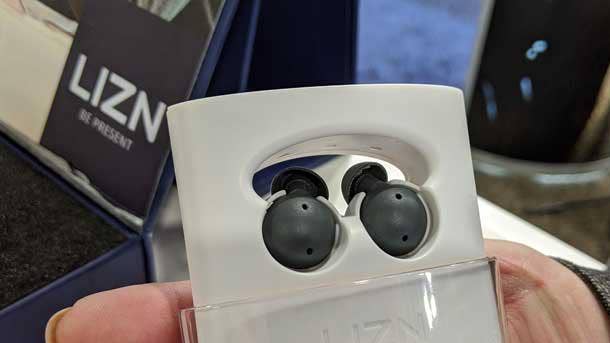
Lizn Hearpieces
Lizn is mixing up the hearables market with its Lizn Hearpieces, which are designed to make it easier to hear speech in noisy environments. In addition to working like regular Bluetooth wireless earbuds, the Hearpieces come with directional microphones and an advanced sound processing system that improves the ability to hear in loud areas. When in hearing mode, all the user needs to do is face the person talking to amplify their voice — and the tap of a button on the Hearpiece can make it louder if needed. Another tap of the device switches them to music playback and phone mode. The wearables are expected to come out later this year, with an expected retail price of $199.
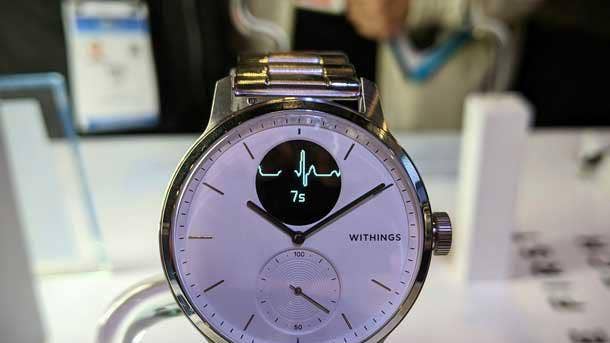
ScanWatch
Device maker Withings is pitching the ScanWatch as the "most advanced health wearable ever designed," with the ability to detect both arrhythmia and sleep apnea. The device, which Withings says is clinically validated, can detect if the user has arrythmia or an otherwise irregular heartbeat through its embedded PPG sensor and then perform an electrocardiogram test on demand. The results can then be easily shared with a doctor or healthcare professional. The ScanWatch can also detect sleep apnea episodes with its blood oxygen. In addition, the device can monitor sleep and analyze sleep patterns, which can be used to inform the device's Smart Wake-Up alarm feature. The ScanWatch is set to launch in the second quarter, with the 38mm version expected to retail for $249 and the 42mm version expected to retail for $299 on Withings' website and Amazon.
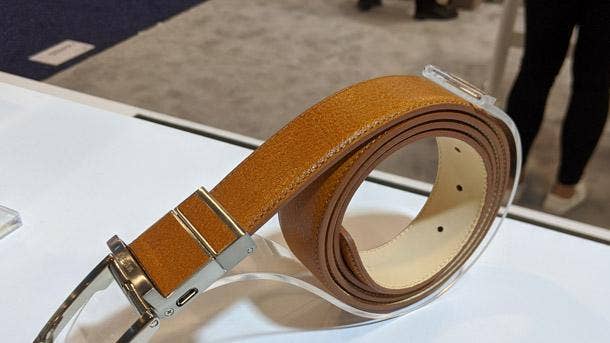
Welt Smart Belt Pro
Welt claims that its new Smart Belt Pro is the first wearable that can detect falls in advance by analyzing irregularities in the user's walking pattern. Thanks to a sensor at the center of the belt, it can assess the risk of the user falling down in real time and send alerts to an app. The smart belt also comes with the ability to measure the waist and sitting time. In addition, it can monitor for overeating and step counting. The device is expected to start shipping later this year for the starting price of $395, depending on the belt's leather type and buckle quality.
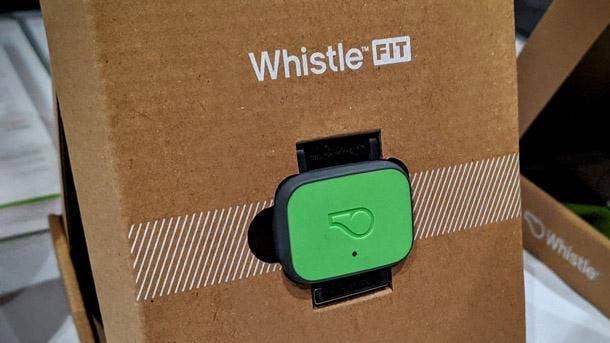
Whistle Fit
The Whistle Fit is essentially a Fitbit for your dog. Pitched as a preventative healthcare tool, the Whistle Fit attaches to the collar and monitors the dog's key health behaviors, food intake management and activity. Unlike the Whistle Go and Whistle Go Explore, the Whistle Fit doesn't come with GPS location tracking. Instead, the new device measures things like calories burned, distance traveled and minutes active. With the Whistle Fit's smartphone companion app, the dog's owner can set recommended daily activity goals based on the dog's breed, age and weight — and the app can send alerts, notifications and weekly wellness reports to keep owners apprised of potential health issues. The device will be available in late January for $79.95, and it will require a $35.40 yearly subscription that provides personalized health and fitness features as well as nutrition recommendations.